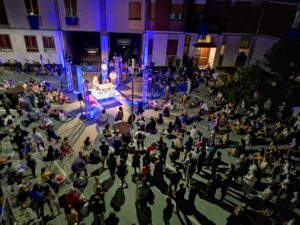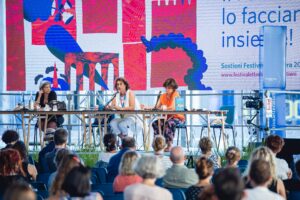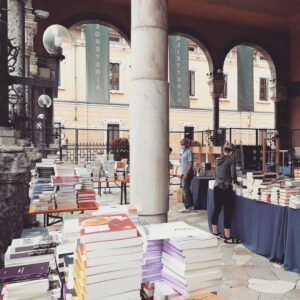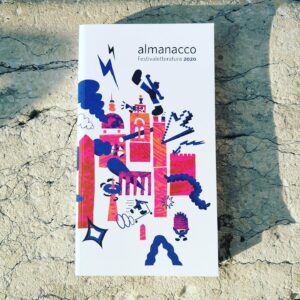Festivaletteratura 2020
Ottobre 5, 2020 in Arte, Attualità, Libri, Net Journal, Poesie, Primo Piano, Racconti, Spettacoli, Viaggi e Turismo da Federica Balbi
9th-13th September 2020
In this special 2020 edition, Italy’s oldest Literature Festival in Mantua has waved goodbye to its founder, Luca Nicolini, who passed away last March.

Despite 20 thousand visitors being a small number as compared to the previous years, the organisers are more than happy with the results they obtained in spite of COVID-19 pandemic. The whole XXIV Festivaletteratura edition was set in place in order to be virus-free. Not only were conferences strongly reduced in number and displaced in wider auditoria, but new formats were also invented: a Poetry Truck has been driving through the city; Prophecies were announced from a terrace each night; Balconies became stages for small-audience meetings, a practice inspired by the quarantine times.
On top of this, new channels were found in order to spread the Festival activities and atmosphere without risking contagion. First, a Web Radio was set in place: with 17 programs and 55 hours of going on air, it gathered more than 10 thousand listeners. Programs are still available on the Festivaletteratura website.
A second innovation was the streaming part, which allowed important foreign writers to take part, including Paul Auster, Abhijit Banerjee, Esther Duflo, Noam Chomsky, Mark Z. Danielewski, Stanislas Dehaene, David Quammen, Judith Butler, Stephen Fry, David Grossman and Jeff Kinney. Moreover, those videos are available online from their very date – while the audio recordings of other live conferences will be uploaded by January 2021 in the Archive.
Finally, an Almanacco was redacted. This book contains 360 ideas, interviews, comics, picture galleries, practical pieces of advice, souvenirs and more, to be read all year long while waiting for the next edition, which will take place from the 8th to the 12th of September 2021. The response to the sanitary emergency was prompt and accurate, and whole festival could happen in the respect of hygienic norms, without missing such an important cultural appointment.



